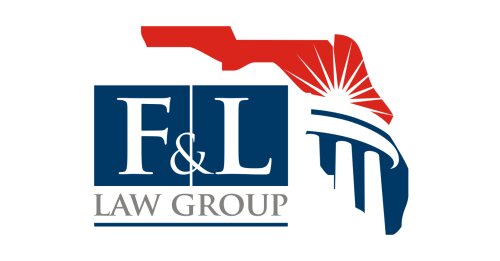Best Probate Lawyers in Florida
Share your needs with us, get contacted by law firms.
Free. Takes 2 min.
Or refine your search by selecting a city:
List of the best lawyers in Florida, United States
United States Probate Legal Questions answered by Lawyers
Browse our 1 legal question about Probate in United States and read the lawyer answers, or ask your own questions for free.
- My husband passed away five years ago. We have a property in th Philippines and I would like to transfer everything to my child. We are now residing in California, as U.S. citizens and my late husband a Filipino citizen.c
- How can I transfer Title on the property to my child?
-
Lawyer answer by Recososa Law Firm
Hello: We are sorry to hear about the passing of your husband, and we extend our deepest condolences. Regarding your concern, since your husband was a Filipino citizen and you are now both U.S. citizens residing in California, the property...
Read full answer
About Probate Law in Florida, United States
Probate is the legal process through which a deceased person’s assets are identified, gathered, and distributed in accordance with their will or, if there is no will, under Florida’s intestate succession laws. This process also involves settling the decedent’s outstanding debts and taxes. In Florida, probate is supervised by the courts to ensure that all assets are properly managed and heirs or beneficiaries receive what they are entitled to. Probate can range from formal administration, which is more complex, to summary administration for smaller estates, making it important to understand which type of probate may apply.
Why You May Need a Lawyer
Probate proceedings can be complicated, especially when multiple heirs, outstanding debts, or disputed wills are involved. Common reasons people seek a probate attorney in Florida include:
- Unclear or contested wills
- Managing large or complex estates
- Resolving beneficiary disputes
- Addressing creditor claims and outstanding debts
- Handling estates with property in multiple states
- Interpreting and complying with Florida probate laws
- Minimizing delays and ensuring timely asset distribution
- Navigating probate if there is no will (intestacy)
- Dealing with potential estate tax issues
A probate lawyer guides you through court procedures, helps avoid costly mistakes, and protects your interests during what is often a stressful and emotional time.
Local Laws Overview
Florida’s probate process is governed by the Florida Probate Code, primarily found in Chapters 731-735 of the Florida Statutes. Below are some key legal features:
- Florida requires most estates to go through probate unless the assets are held outside probate (like in a living trust or with beneficiary designations).
- There are two main forms: Formal Administration for larger or more complex estates, and Summary Administration for smaller estates.
- An estate may use Summary Administration if the value of the assets subject to probate in Florida (excluding exempt property) does not exceed $75,000 or the decedent has been dead for more than two years.
- If assets are jointly owned with rights of survivorship, or have designated beneficiaries, they generally bypass probate.
- The court appoints a personal representative (executor) to administer the estate. If no will exists, Florida statutes determine who can serve in this role.
- Creditors must be notified and given a timeframe to make claims against the estate.
- Heirs or beneficiaries are entitled to notice and may contest aspects of the probate.
- Florida has homestead protections, which may prevent the forced sale of a decedent’s primary residence in some cases.
Frequently Asked Questions
What is probate?
Probate is the court-supervised process of identifying, gathering, and distributing a deceased person’s assets, paying their debts, and ensuring the correct heirs or beneficiaries receive their inheritance under Florida law.
Do all estates need to go through probate in Florida?
No, not all estates require probate. Assets with designated beneficiaries or held jointly with rights of survivorship usually bypass probate. Small estates may qualify for simplified procedures.
How long does probate take in Florida?
Formal probate can last six months to over a year, depending on the estate’s complexity and any disputes. Summary administration may be completed more quickly.
What does a personal representative do?
The personal representative, sometimes known as the executor, is responsible for managing the estate, paying creditors, and distributing assets as directed by the will or Florida law.
Can I avoid probate in Florida?
Yes, through careful estate planning such as creating a living trust, titling assets jointly, or designating beneficiaries on accounts, probate can often be avoided for many assets.
What happens if there is no will?
If someone dies without a will, their property is distributed according to Florida’s intestacy laws, which prioritize spouses, children, and other close relatives.
What are probate fees and costs?
Probate involves court fees, publication costs, and potentially attorney’s fees or personal representative fees. Costs depend on the estate’s value and complexity.
Can someone contest a will in Florida?
Yes, interested parties can contest a will if they believe it is invalid due to fraud, undue influence, lack of capacity, or improper execution. They must act promptly and have valid legal grounds.
Are all assets subject to probate in Florida?
No, only assets owned solely by the decedent without beneficiary designations or rights of survivorship are subject to probate. Bank accounts, life insurance, and retirement accounts with named beneficiaries usually bypass probate.
Is probate different for residents and non-residents with Florida property?
Yes, non-residents who own real estate in Florida may require an ancillary probate proceeding in Florida, even if their primary estate is handled elsewhere.
Additional Resources
If you need help understanding or handling probate matters in Florida, you may find these resources useful:
- Florida Bar Association - offers consumer information and lawyer referrals
- Florida Courts Self-Help Center - provides forms and procedural guidance
- Clerk of Court in your local Florida county - handles filing and administrative matters
- Florida Department of Financial Services - information for locating unclaimed assets
- Legal aid organizations in your area - may offer free or low-cost assistance
Next Steps
If you are facing probate or have questions about estate administration in Florida, consider the following steps:
- Gather important documents such as the will, death certificate, and list of assets.
- Identify all potential heirs and beneficiaries.
- Contact the probate division of your local county clerk’s office to initiate proceedings if needed.
- Consult with an experienced Florida probate attorney, especially if the estate is large, complex, or contested.
- Review Florida statutes and local probate court rules to understand your rights and obligations.
- Act promptly, particularly if you believe you may need to contest a will or claim an interest in an estate.
- Keep detailed records of all correspondence and transactions related to the estate.
Obtaining skilled legal advice can help you navigate the sometimes lengthy and complex probate process, avoid errors, and protect your legal rights and financial interests.
Lawzana helps you find the best lawyers and law firms in Florida through a curated and pre-screened list of qualified legal professionals. Our platform offers rankings and detailed profiles of attorneys and law firms, allowing you to compare based on practice areas, including Probate, experience, and client feedback.
Each profile includes a description of the firm's areas of practice, client reviews, team members and partners, year of establishment, spoken languages, office locations, contact information, social media presence, and any published articles or resources. Most firms on our platform speak English and are experienced in both local and international legal matters.
Get a quote from top-rated law firms in Florida, United States — quickly, securely, and without unnecessary hassle.
Disclaimer:
The information provided on this page is for general informational purposes only and does not constitute legal advice. While we strive to ensure the accuracy and relevance of the content, legal information may change over time, and interpretations of the law can vary. You should always consult with a qualified legal professional for advice specific to your situation.
We disclaim all liability for actions taken or not taken based on the content of this page. If you believe any information is incorrect or outdated, please contact us, and we will review and update it where appropriate.
Browse probate law firms by city in Florida
Refine your search by selecting a city.














